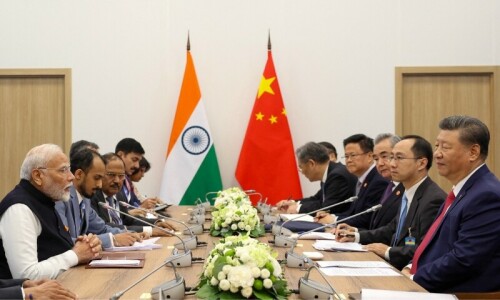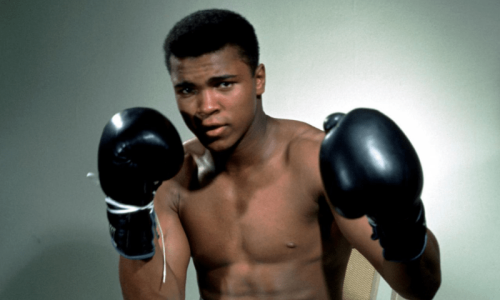ANCIENT Hittite law commanded: “If anyone questions a decision of the king, his house will become a heap of ruins.” Mere moments after the ouster of Imran Khan and resultant dissolution of his government, the FIA launched a crackdown against several individuals who had been active on social media. The person who spearheaded PTI’s digital media activities had his house raided, while some members of the party’s social media team were picked up, detained and later released. Those released revealed they had been asked to delete certain tweets critical of the military.
As per the FIA, the detainees had launched a vilification campaign against the military. The PTI refuted the allegation and challenged the FIA in the Islamabad High Court, which subsequently restrained the FIA from making further arrests.
The muzzling of dissent through the arrest, detention, abduction, harassment and even elimination of journalists, bloggers and free thinkers has become the norm in Pakistan. Journalists have faced the worst kind of state-sponsored brutalities to silence them. Today, free thinkers critical of state institutions are receiving threatening messages to subdue their probing habits and curiosity. Television channels have been browbeaten to give minimum coverage to demonstrations of the ousted PM. Looks are deceptive, and if to the naked eye our media has been freed, the reality is it remains heavy shackled.
The near instant crackdown of the FIA against PTI activists was both illegal and unconstitutional. It has to be clarified under what authority of law the FIA was acting to curb alleged criminal defamation, as the court had struck down the provisions of the Pakistan Electronic Crimes Act (Peca) which criminalised defamation. Moreover, the Islamabad High Court had also set aside a recent amendment in Peca which had criminalised defamation of state institutions. Even apprehending those critical of armed forces under terrorism charges is a flagrant abuse of power. The superior judiciary, whilst interpreting the anti-terrorism law, has unequivocally held that the offence of terrorism only includes those acts which may create terror and sense of insecurity in the public at large.
The powers of arrest cannot be used in a whimsical way.
However, the debate here is not about whether or not dissidents committed an offence while criticising the armed forces. The crucial issue is the illegality, irregularity and unconstitutionality of the mode, method and procedure adopted by FIA to quell dissent under the garb of national security.
Arbitrary raids, abduction and torture by state agencies to curtail speech are not permitted in constitutional democracies governed by the rule of law. The rule of law seeks to safeguard individuals from the abuse of power. It envisages that whoever the person may be, they cannot be above the law. Article 4 of the Constitution, which embodies the essence of the rule of law, mandates that it is the inalienable right of every individual to be treated in accordance with it. State instrumentalities, therefore, cannot be allowed to exercise discretion with impunity at their whims. The English philosopher John Locke fittingly observed, “Where law ends, tyranny begins.”
To stifle dissent, the power of arrest, detain and raid cannot be used in a whimsical manner as the same impairs the right to life, liberty, due process and privacy guaranteed under Article 9, 10, 10A and 14 of the Constitution. In the Sughran Bibi Case of 2018, legendary jurist Asif Khosa, while upholding the scheme of Article 9, 10 and 10A, had held that no person is to be arrested straightaway just because they are nominated as an accused in an FIR until there are cogent grounds for the arrest. The findings of the apex court are binding on all organs of the state, including the FIA, pursuant to Article 189.
Free speech is a fundamental right guaranteed under Article 19 of the Constitution. It cannot be abolished, only regulated by law — and that too in a reasonable manner. Subjugation of free speech is not only unconstitutional, it also has adverse social impacts. Gagging free speech creates regressive societies which inescapably devolve to chaos and anarchy. Mere apprehension of injury to reputation and national security of the state without any reasonable basis cannot justify curbing free speech. Men feared witches and burnt women. It is the function of speech to liberate men from the fetters of such irrational fears.
The power wielders need to appreciate that it is not the government’s job to prevent a citizen from falling into error. Rather, it is the duty of the citizen to keep the government in check. Free speech is indispensable for discovery of the ultimate good. Justice Oliver Wendell Holmes rightly held, “The ultimate good desired is better reached by free trade in ideas — that the best test of truth is the power of thought to get itself accepted in the competition of the market.”
The writer is a lawyer based in Lahore.
Published in Dawn, May 2nd, 2022










































